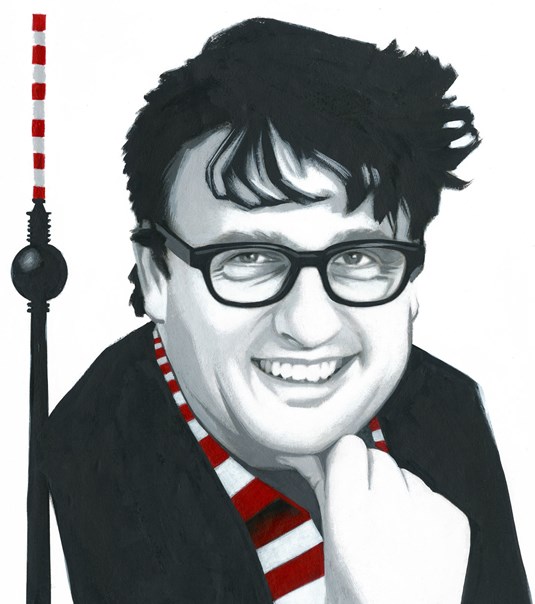Ingo Rübe, founder and CEO of BOTlabs, sees open source as a vehicle to help shape the next stage of the internet.
Berlin has undergone a metamorphosis from historical capital to a hip startup hotspot, a magnet for tech freaks around the world. Ingo Rübe is one.

A punk rocker in the city in his youth, he earned a degree in information technology and became first a Director at Axel Springer and later CTO at Burda, a big-name publishing house. He is a fan of cool tech, and drives a Porsche with a hybrid engine. In jeans, sports coats and big glasses, he is cool but not conspicuous.
Recently, Mr. Rübe founded BOTlabs, his latest project in cooperation with Burda. The future of the internet, he feels, is more democratic, enabled by blockchain and open-source technology. Burda, in turn, recognizes that it has benefited from Mr. Rübe’s expertise and vision and has absolute faith in the project, in which it holds a minority stake.
Prediction always involves risk. Are you a gambler at heart?
No, not at all. I just look at the facts and trends and put them together. Some developments can be forecast with remarkable accuracy this way. Hardly anyone believed me in the late ’80s when I told my punk friends that they will all end up with an email address in 10 years’ time.
You were a punk?
Yes, indeed. Berlin in the ’80s. Clubs, concerts – alcohol as well. A long time ago. I still go to punk concerts, but only now and then.
How did you come to be an early champion of open source?
Open source is actually a lot like knowledge. In the digital society, fundamental software is like education – it has to be accessible to everyone free of charge. This not only ensures equal opportunities, it also provides a lot of protection for companies’ investments in innovation.
Today, 95 percent of all business server systems run on the open-source operating system Linux. Web servers and database systems are similar. Look at HTTP [hypertext transfer protocol – a set of standards that serve as the foundation for the World Wide Web]. Without HTTP, there would no e-commerce, no social networks and not even news on the internet. Around 80 percent of the 11,000 jobs at Burda would never have been created without open-source technology. If HTTP’s inventor Tim Berners-Lee had charged a one-cent licensing fee for every visit to a website, the World Wide Web and the millions of jobs that are connected to it would never have been created.
You convinced Burda to adopt the open-source content management system Thunder. What was the reasoning there?
Burda had hundreds of content management systems for hundreds of websites. That was very wasteful. My job was to clean up this mess. We did not want to end up being dependent on a single vendor so, with open source, we sought to create a community of publishers to jointly develop the system.
Burda sites switched over in record time with minimal costs. Three years later, hundreds of publishers use Thunder. A vibrant community was born, and Burda is benefiting without having to pay licensing fees. What’s more, Burda has become a very attractive employer for technologists and has gained a lot of credibility and standing in the market.
